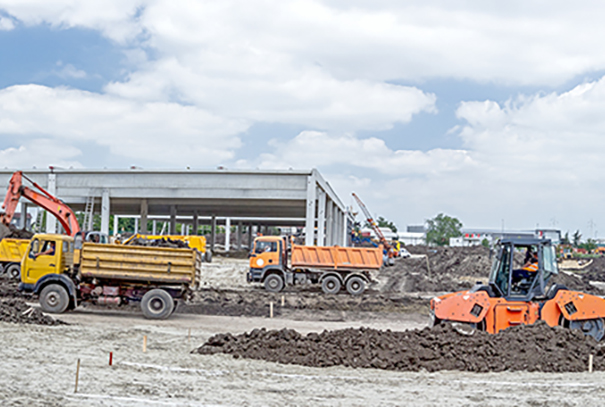
Gallagher has seen contractors of all sizes in a state of flux, with furloughs, redundancies, restructures all currently taking place. It does not seem too unlikely that some may also fall into administration if trading conditions remain challenging. Once lockdown restrictions ease, those contractors still able to trade will then be in a race to raise capital to commence crucial projects. A further complication for those developers relying on external finance is the potential uncertainty on just how long lenders will continue to honour their pre-agreed COVID-19 commitments.
Perhaps now is the time to mitigate project risk by reviewing how you would deal with defects causing damage in the event of contractor insolvency, this can be for both current projects and your development pipeline. Gallagher’s Construction team are working hard alongside our underwriter partners to assist clients with insurance solutions such as Latent Defects Insurance (LDI).
What is Latent Defects Insurance?
The purpose of LDI is to provide indemnity for damage to a new building, either 10 or 12 years after practical completion, that was defective in design, workmanship or materials. If developers do not have a solution in place and their contractor becomes insolvent, then it is likely developers will not be covered for defective works.
Subject to policy terms and conditions, LDI covers the reinstatement cost - including professional fees - for structural defects, threat of imminent collapse, ingress of water (excluded for first 12 months), and subsidence, landslip or heave. Cover also includes debris removal and resultant damage to non-structural elements. There are additional covers available such as loss of rent, increased cost of working and damage to mechanical and electrical services.
LDI is commonly procured for the following reasons:
- Property policies often exclude latent defects from construction and the risk of collapse.
- It provides protection from contractor insolvency, and/or if the contractor successfully caps their design liability under contract.
- It is a first-party policy; and therefore preferable for owners/developers who otherwise would be wholly reliant on contractual liabilities, which can lead to disputes and delays.
- The technical audit process gives the owner/developer a second set of eyes on the site team.
Whilst the general stand point with LDI is that it has to be arranged prior to commencement of works to enable insurers to carry out their audits, with the right information it is possible to arrange the cover where works have already commenced.
In recent times, Gallagher have seen an increase in insurer appetite for projects that have started construction which could arguably be as a result to new carriers entering the space.
My project has already started, what information do you need to get me a quote?
To commence conversations with underwriters, our team would need the usual design and structural information plus quality assurance records and pictures of each key phase of the build.
It should be noted that the LDI market is highly specialised, niche and each insurer will have a different appetite. In some cases, specific exclusions may be applied if works have progressed too far. The sooner you engage your insurance broker, the greater the chances of a successful insurer response.
About Gallagher’s Construction Division
Our Construction division arranges insurance for UK and international contractors and designs bespoke owner-controlled programmes across a wide spectrum of projects. Our clients range from contractors and engineers, to sponsors, financiers and local authorities. With our help, project stakeholders can identify, mitigate and transfer risk more strategically.
We offer products and services to enable our clients to manage complex risks of all sizes, including:
- Construction / Erection All-Risks
- Delay in Start-Up
- Pre-handover & Operational Risks
- Business Interruption
- General & Third-party Liability
- Marine Cargo
- Latent Defects
- Environmental / Pollution Liability
- Terrorism & Political Risk
- Mergers & Acquisitions
- Legal Indemnities
All the policies we arrange are subject to terms, conditions and exclusions.


